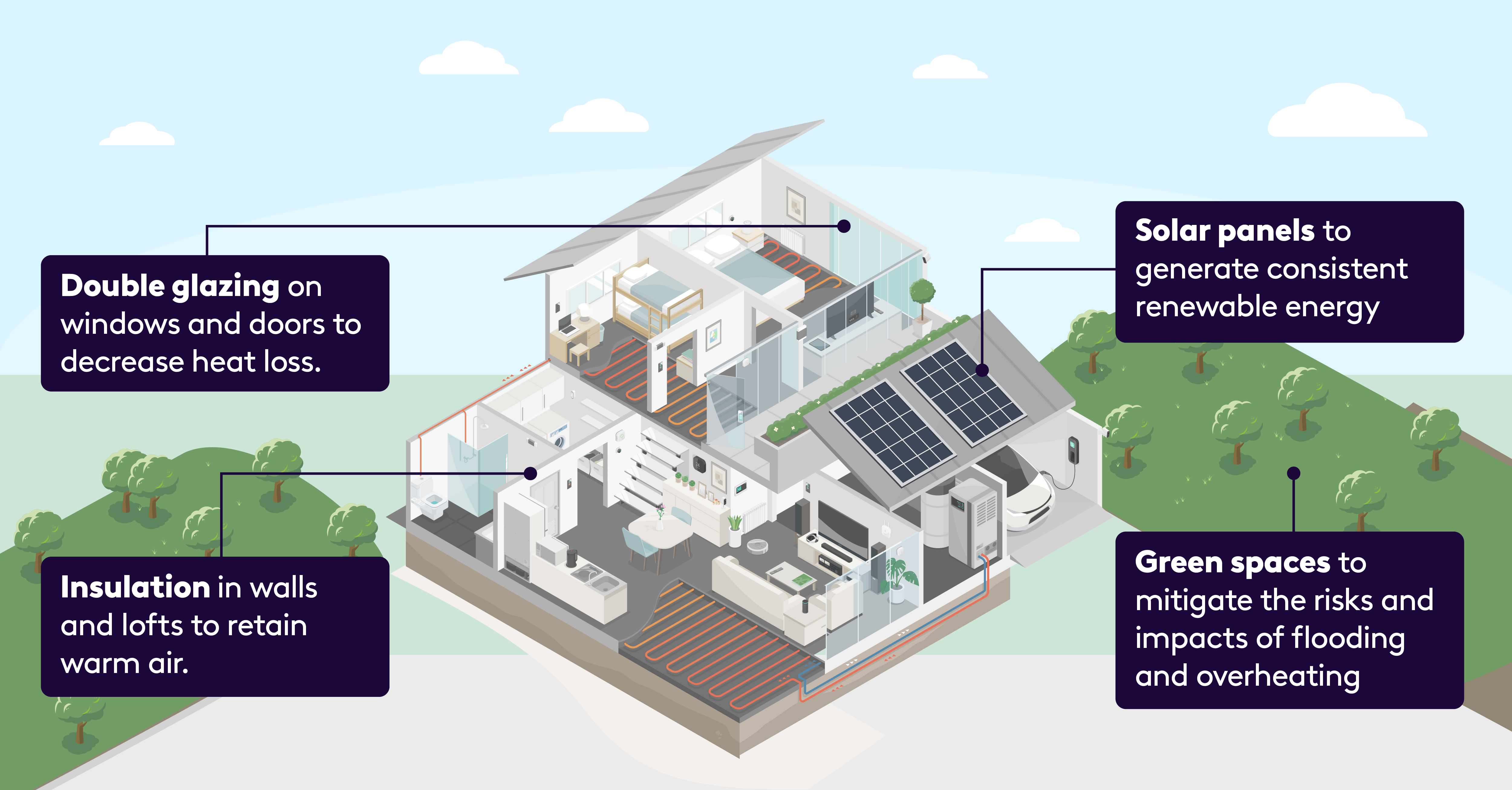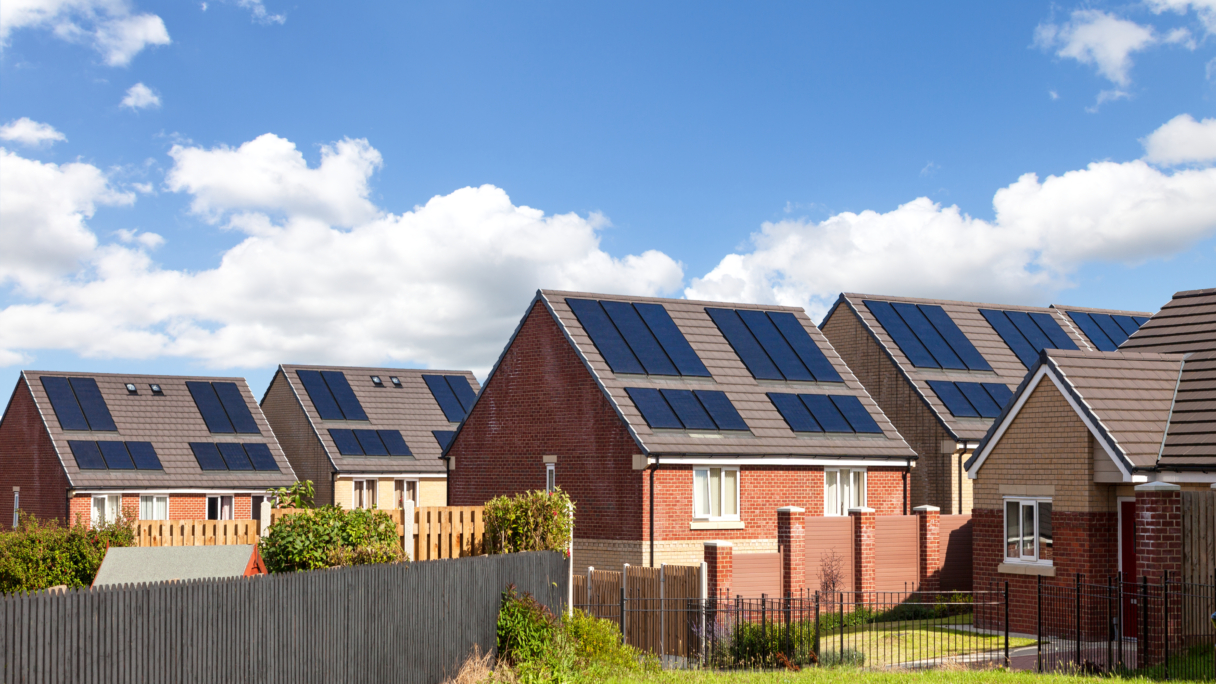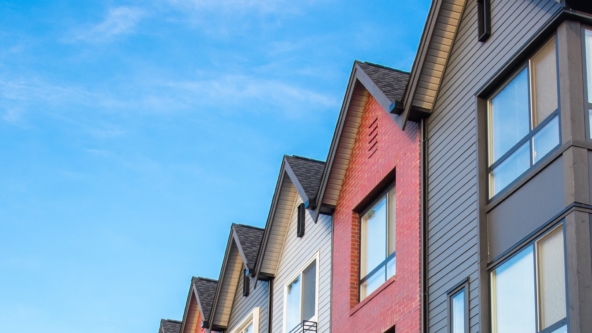We recently sat down with Jack Burnham, Head of the Affordable Housing Fund at Octopus, to explore how the UK’s housing and cost-of-living crises intersect. Our discussion focused on the need for revolutionising our current homes, as well as building new housing, and the unique opportunity in our transition towards a net-zero future.
We know that the UK is facing an affordable housing shortage. This has been widely reported in the media and is high on the government’s priority list.
In our last article, we explored how investors can help meet the growing demand for affordable housing by providing the social housing sector with sustainable funding to build high-quality, energy-efficient homes for those who need them the most.
For this piece, we will examine another well-documented challenge, which is, in fact, probably the most pressing issue of our time: achieving our net zero targets. We’ll look at how sustainable investment into affordable housing can reduce fuel poverty and help us achieve our net-zero goals.
The challenges we’re facing
Despite setting ambitious net-zero targets for 2050, many of the UK’s homes aren’t yet equipped to achieve them. At the same time, we’re in the middle of a cost-of-living crisis, with fuel poverty at the heart of the problem.
We spoke with Jack Burnham, our Head of Affordable Housing, about housing associations’ challenges. He explained, “The Affordable Housing Sector is under pressure to invest in existing homes, which, coupled with the increased cost of debt, is limiting the sector’s ability to build new homes. This is in addition to the sector’s challenge of being net zero by 2050.
“We’re also seeing the impact of the cost-of-living crisis and high energy bills on people and how increased household costs are making housing affordability even more stretched, even in affordable homes.
“We think it’s important to invest in energy-efficient homes, not just for the environment, but so that homes are genuinely affordable for the people who are living in them.”
The next step: revolutionising our homes
We need to revolutionise our homes to combat fuel poverty and achieve net-zero emissions.
However, this doesn’t mean we should only focus on new construction. Retrofitting existing homes is just as crucial as building more housing.
To make current homes more energy-efficient, we could:
- Install solar panels to generate consistent renewable energy.
- Build more green spaces to mitigate the risks and impacts of flooding and overheating.
- Utilise low-carbon heating systems such as heat pumps or connections to district heat networks.
- Improve insulation in walls and lofts to retain warm air.
- Fit water-efficient devices like low-flow taps, thermostats, and insulated tanks.
- Upgrade to double glazing on windows and doors to decrease heat loss.
- Replace appliances with highly energy-efficient models.

By making these changes, we can help create energy-efficient homes that tackle fuel poverty and help us achieve our net-zero emissions goals.
Jack emphasised the importance of this, saying, “We know housing is a massive contributor to the energy use in the country. As we saw over the winter, the national grid offers incentives for people to use less energy at peak times, so it has less burden on the grid.
If we can do our bit by reducing the energy that homes need, that’s great for the national infrastructure.
And if we can add renewable energy onto our properties that provide energy back to the grid sustainably, that can only be a good thing.”
Private capital has a vital role to play
The intersection of housing and climate change presents a unique opportunity for investors to help transform lives and build a more sustainable future.
Private capital can play a significant role in helping local authorities achieve their goals of addressing the affordable housing need, promoting equality and contributing to net-zero targets. While the government is actively taking steps to provide funding, private investment in high-quality, energy-efficient housing can accelerate development.
Meanwhile, institutional investors can potentially achieve multiple objectives, such as resilient income, social-environmental impact, and climate risk management.
Jack is highly passionate about how investing in the sector can create broader socio-environmental value. “It seems crazy in 2023 that we’ve got teachers and nurses having to choose between heating and eating, particularly when we know we’ve got the technology and the resources to provide properties with low energy bills if it’s done in the right way.
So, we’re passionate about providing renewables; we’re passionate about building homes that have got the lowest possible energy bills that we can provide to make sure that people don’t have to face that choice when they live in one of our homes.”
We look to unlock the full potential of affordable housing, enabling people to enjoy the benefits of more homes with reduced energy bills. At the same time, local authorities can benefit from providing energy-efficient housing, which can help raise living standards for their communities. And institutional investors can benefit from investing in sustainable, affordable housing, which can help balance multiple objectives.
Interested in affordable housing?
Talk to one of us.
If you are interested in investing into affordable housing, or other alternative investments, we would love to hear from you. Please fill out the form below and we will be in touch shortly to arrange a time for further discussion.



